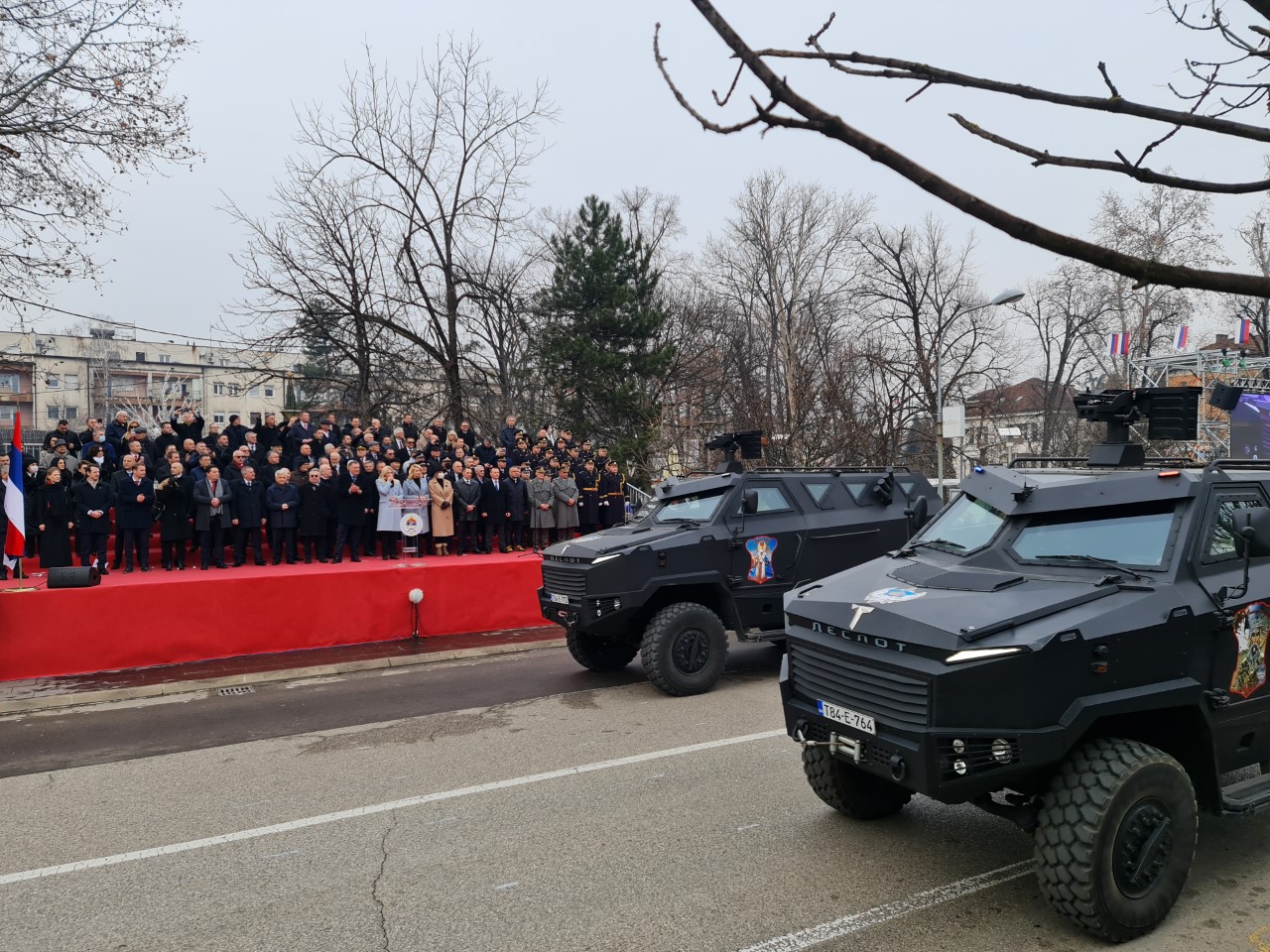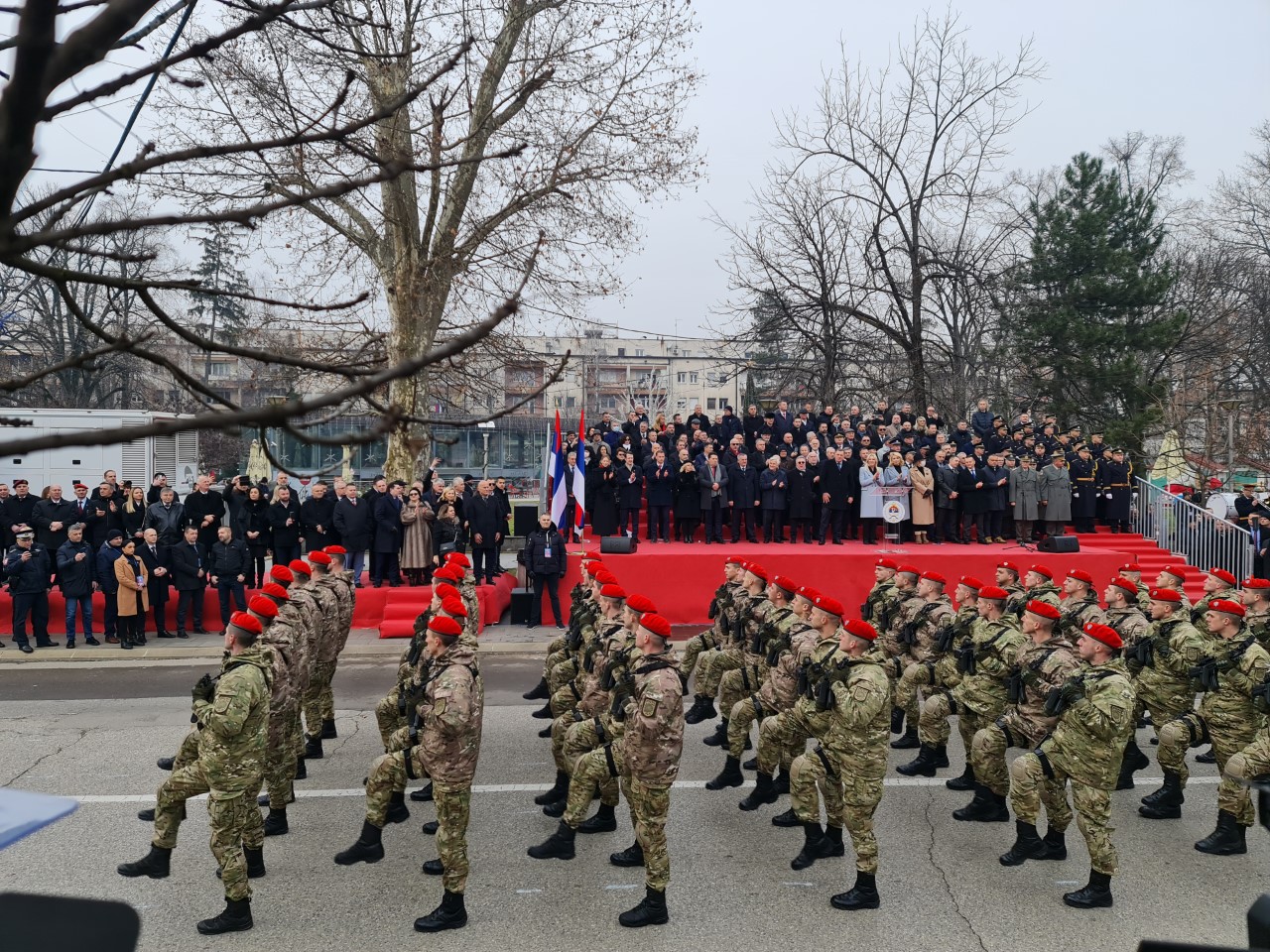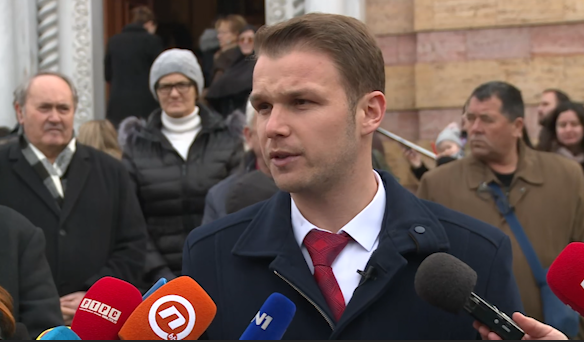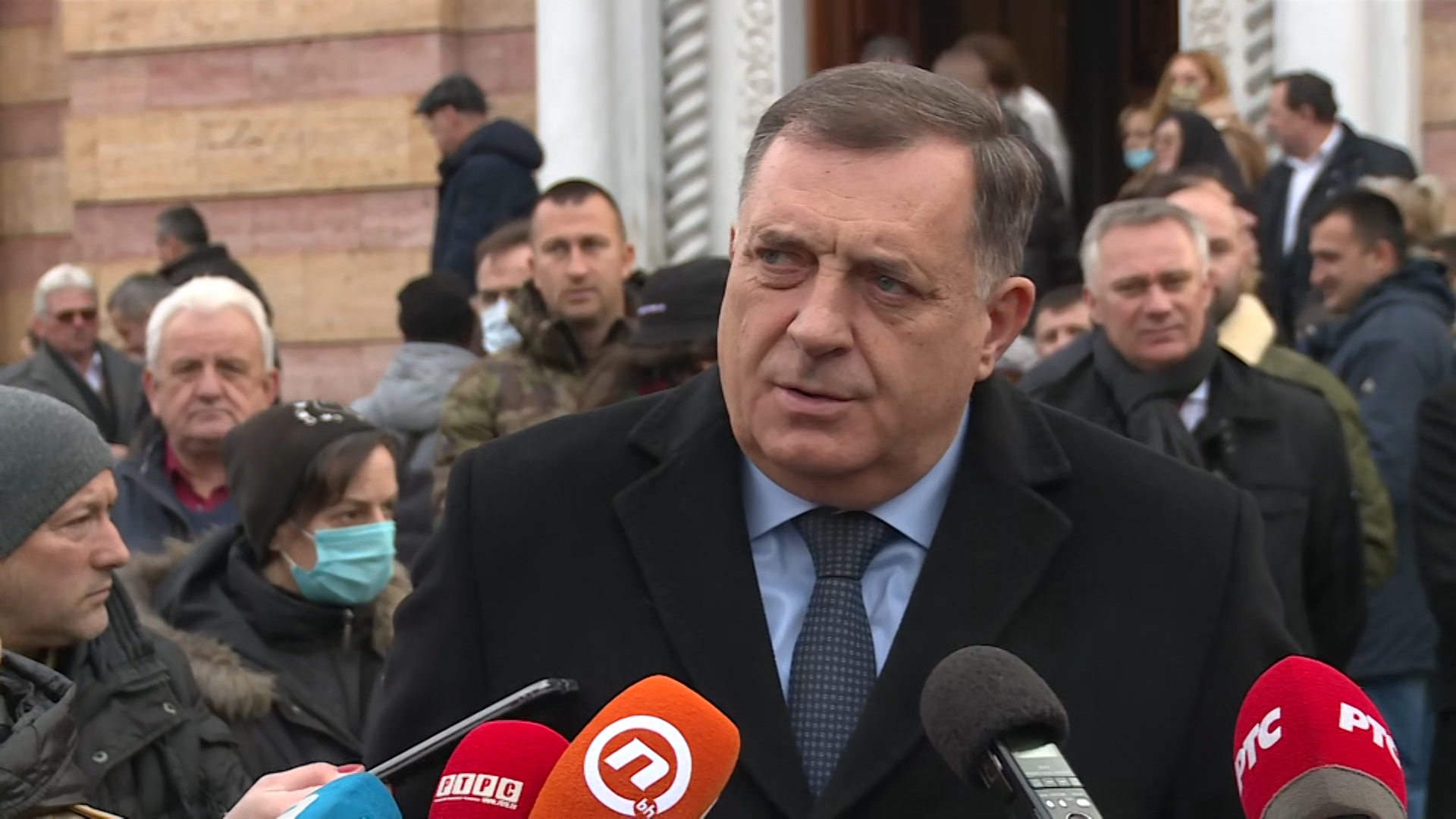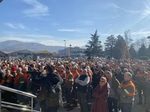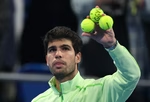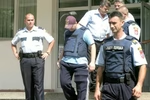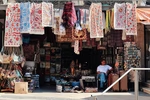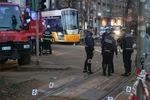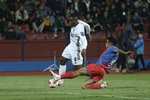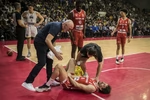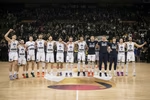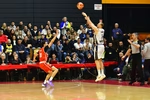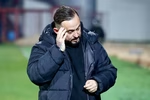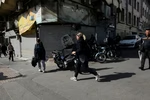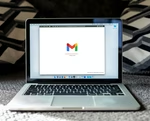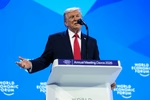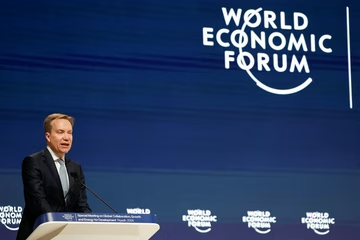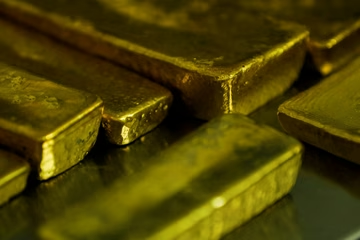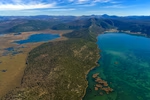Controversy marks unconstitutional January 9 celebration in Bosnia's RS entity
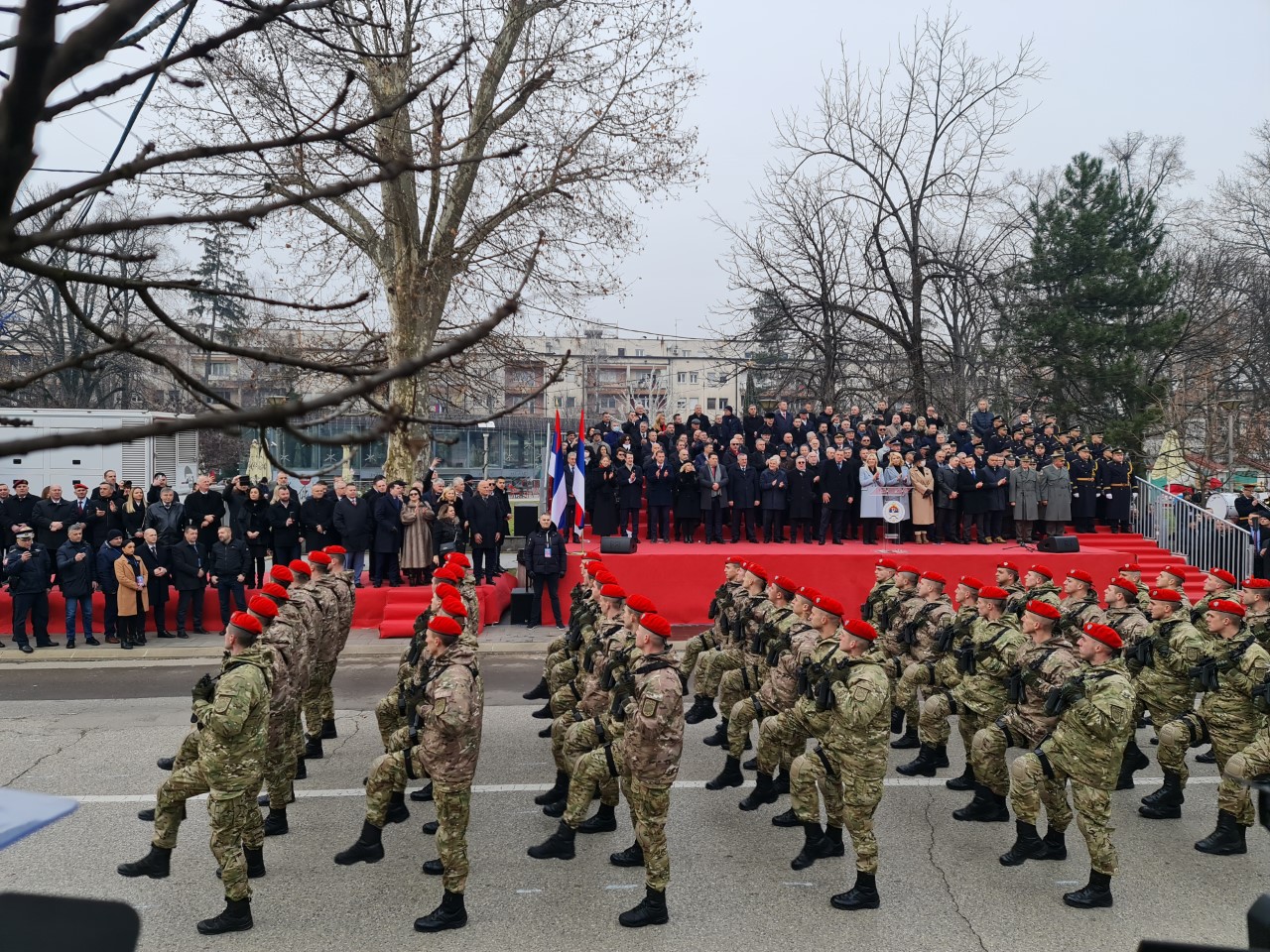
Thousands gathered in Banja Luka to attend or participate in a parade, celebrating the anniversary of the establishment of Bosnia's Serb-majority entity in 1992, despite the decision of the Constitutional Court, which declared the January 9 celebration unconstitutional.
The disputed holiday is marked by defiance, nationalistic outbursts, criticism and incidents.
Sunday’s celebration started with a religious mass led by the Patriarch and dedicated to the patron saint of Republika Srpska, St. Stephen. It continued with a parade of police forces, sports clubs and other participants.
Many Serbs in Bosnia view the semi-autonomous entity Republika Srpska as a separate state, or at least one that will eventually secede from Bosnia and perhaps join neighbouring Serbia - a goal Serb forces pursued during the 1992-95 Bosnian war.
Bosnian Serb political leader, Milorad Dodik, who is also the Serb member of the country’s tripartite Presidency, said in his address to the citizens attending the parade that there cannot be freedom for the Serb people if they do not have a state and that "Republika Srpska is our state, regardless of what some may think of it."
He finished his speech with: “Long live Republika Srpska, long live Serbia.”
Republika Srpska public broadcaster, RTRS, covered the celebrations in detail with occasional interviews with guests like former soldiers and generals who fought for Republika Srpska and who glorified the achievements of their army and its general Ratko Mladic - the wartime head of their army who was later sentenced by a UN tribunal to life in prison for war crimes, including genocide.
Mladic’s son Darko was a guest in the studio and said he spoke to his father half an hour ago and that Mladic said he was happy the holiday is being celebrated and that he was sending his congratulations to the citizens of Republika Srpska.
Darko Mladic said that his father was happy Republika Srpska was alive, thriving and managing to withstand all the pressure. He also said that his father always put Republika Srpska first.
“People recognised that and this is why he is so beloved, despite all the propaganda against him,” he added.

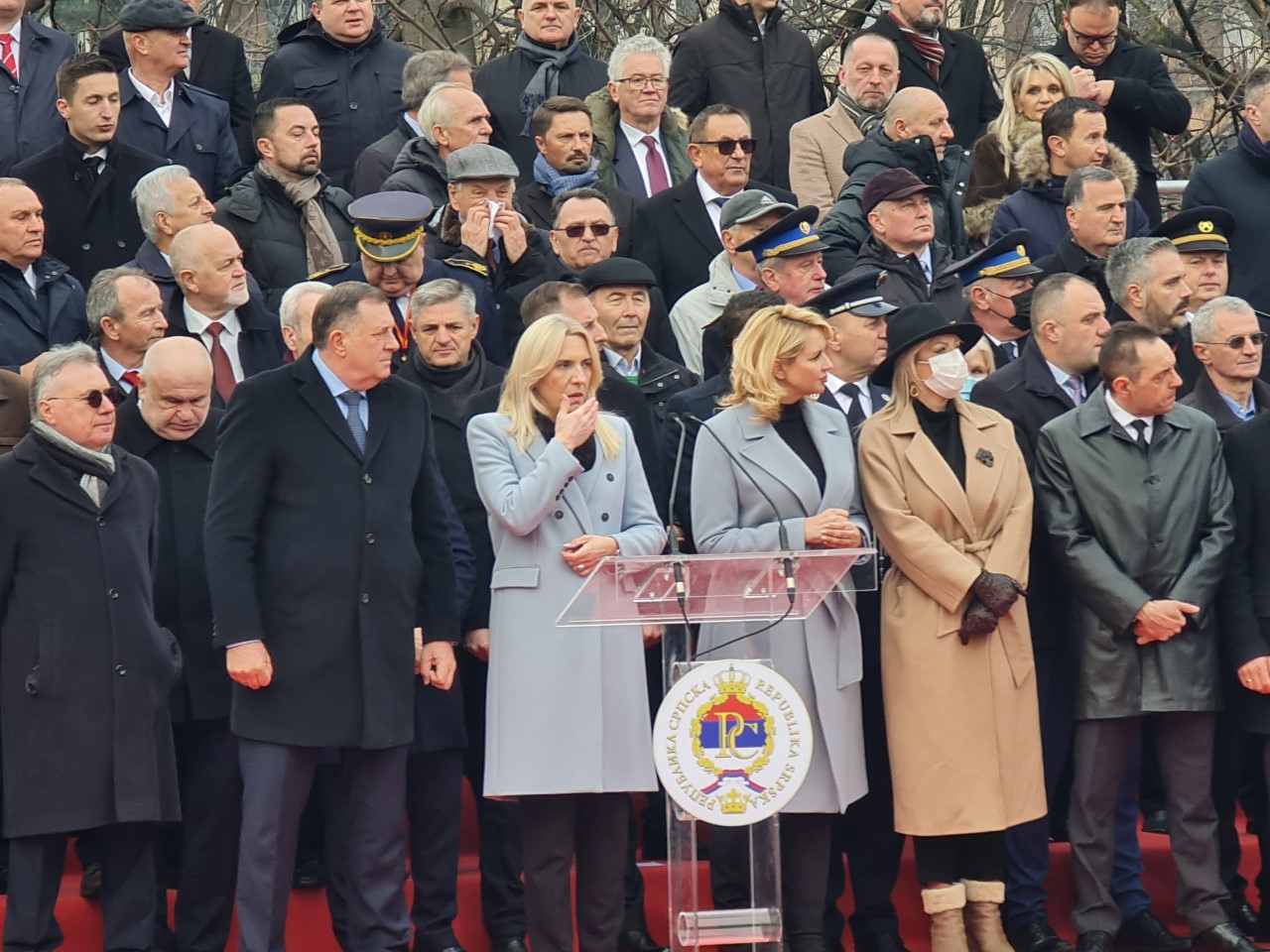
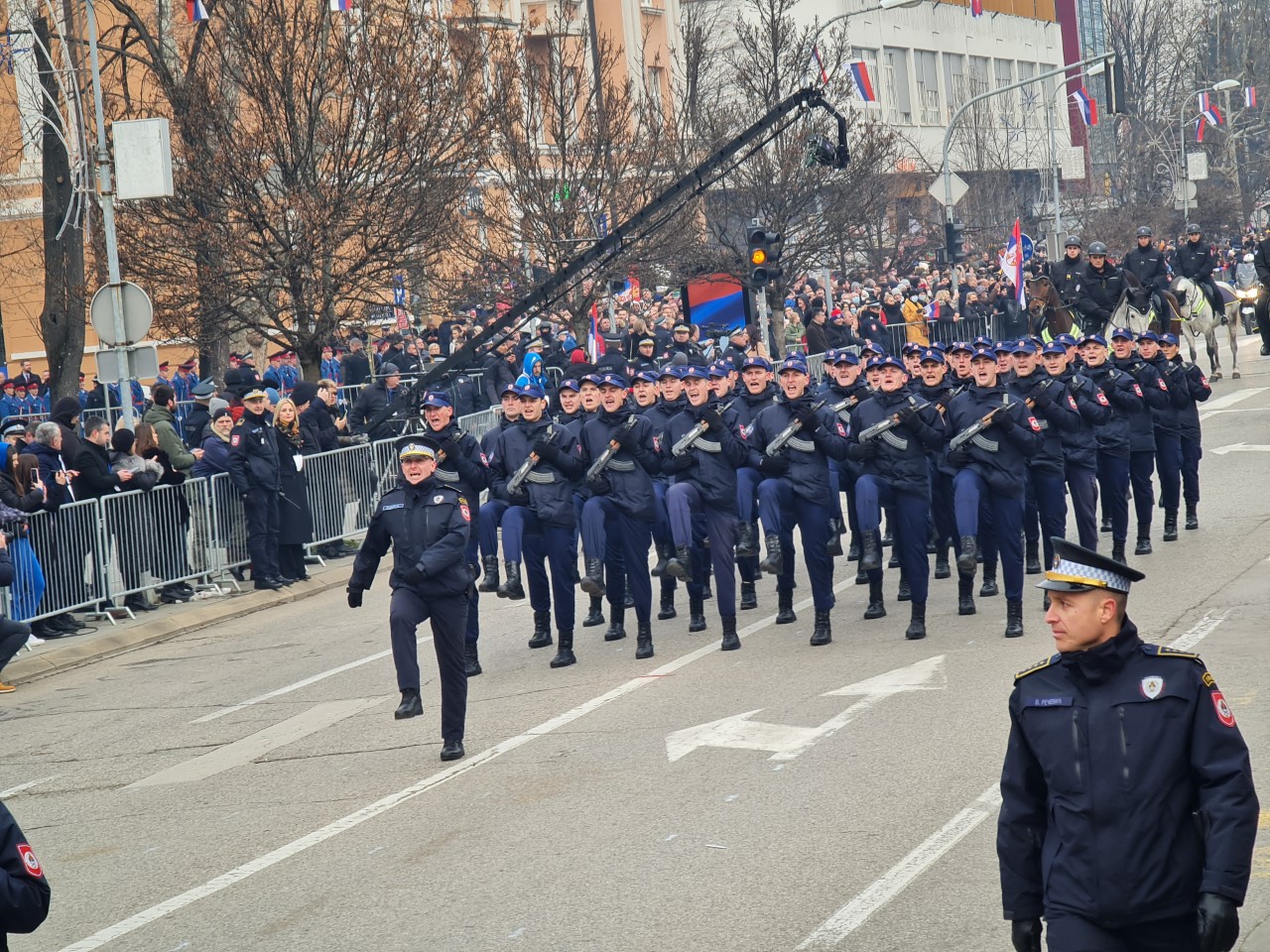
Many Serbs view the UN war crimes tribunal in The Hague as a political, anti-Serb bias court and have the same opinion of Bosnia’s Constitutional Court which banned their holiday.
On January 9, 1992, Bosnian Serbs issued the Declaration of the proclamation of the Republic of Serbian people of Bosnia and Herzegovina, which Bosniaks still see as a prelude into the 1992-95 war that took over 100,000 lives, devastated the country and saw the return of genocide back on European soil.
The war ended with a peace agreement brokered in Dayton, Ohio, in 1995, which divided the country into two semi-autonomous regions – Republika Srpska with a majority Serb population and the Federation of mainly Bosniaks and Croats.
The holiday was declared unconstitutional in November 2018 but authorities in Republika Srpska continue to ignore the ruling of the Constitutional Court, despite criticism from the country’s Bosniaks and the international community.
The court ruled that the holiday was discriminatory against non-Serbs in Republika Srpska because January 9 is also a Serbian Orthodox religious holiday – the day of St Stephen, the patron saint of the entity.
Bosnian Serbs vehemently rejected the ruling and organized a referendum in September 2016, where the majority of the entity’s citizens voted in favour of the holiday.
The Constitutional Court then declared the referendum itself illegal, but the Republika Srpska National Assembly passed the Law on the Day of Republika Srpska, which named January 9 as a secular holiday.
That law was ruled unconstitutional too in March 2019.
Sarajevo-based left-leaning Nasa Stranka party said that all those celebrating today are denying the country’s Constitution and rule of law.
“January 9 cannot be the Day of Republika Srpska. That’s what the Constitutional Court said as well as the Venice Commission,” said a statement issued by the party, adding that those who are celebrating today are also celebrating the beginning of the war, the ethnic cleansing, war crimes and genocide committed against non-Serbs three decades ago.
“Celebrating the self-proclaimed republic that was led by convicted war criminals means hitting the civilisational rock bottom,” the party said, adding that the noise made by these celebrations silenced for a few days the existential problems of the citizens and calling the celebrations “the crowning of 30 years of delusions.”
It added that Serb authorities in Bosnia are insulting and threatening the returnees and the victims of the worst war crimes, including genocide.
Nationalistic incidents, provocations and insults were recorded in several cities in Republika Srpska.
In Brcko, soccer fans destroyed a mural that commemorates the victims of the Srebrenica genocide. In Janja, several men shot in the air three days ago on Orthodox Christmas and insulted people who were leaving the mosque after prayer. In Prijedor, a group of men sang songs on the street Saturday evening, celebrating war criminal Ratko Mladic, who was also glorified in Foca.
Dodik condemned the incidents, saying they were committed by individuals and called for authorities to act in accordance with the law.
The mayor of Banja Luka, Drasko Stanivukovic, said he was sorry that some people felt uncomfortable.
“I apologize,” he said, adding that as a politician and as a young person, he can’t support such actions.
“There has to be understanding among people - after all we are living together. Living together is a must, just as the existence of Republika Srpska is a must,” he said.
Kakvo je tvoje mišljenje o ovome?
Učestvuj u diskusiji ili pročitaj komentare





 Srbija
Srbija
 Hrvatska
Hrvatska
 Slovenija
Slovenija





